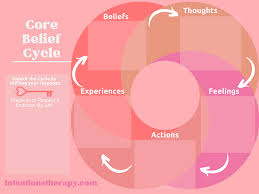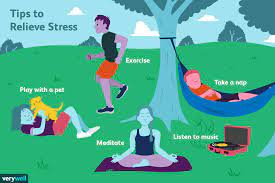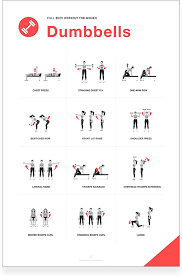Deep-rooted beliefs are those beliefs that are ingrained in our subconscious mind and shape our thoughts, actions, and behaviors. These beliefs are often formed during childhood and can be influenced by our family, culture, religion, or life experiences. They can be positive or negative, but they have a significant impact on how we perceive ourselves and the world around us.
Positive deep-rooted beliefs can help us build self-confidence, resilience, and a positive outlook on life. For example, if we believe that we are capable of achieving our goals and that failure is just an opportunity to learn and grow, we are more likely to take risks and pursue our dreams.
On the other hand, negative deep-rooted beliefs can hold us back from reaching our full potential. For instance, if we believe that we are not good enough or that success is only for a select few people, we may sabotage ourselves by avoiding challenges or giving up too easily.
Changing deep-rooted beliefs can be challenging because they are deeply ingrained in our subconscious mind. However, it is possible with the right mindset and tools. One effective way to change negative deep-rooted beliefs is through hypnotherapy.
Hypnotherapy is a therapeutic technique that uses hypnosis to access the subconscious mind and change limiting beliefs. During a hypnotherapy session, the therapist induces a state of relaxation in the client and guides them into a trance-like state where they become more receptive to suggestions.
Once in this state of heightened suggestibility, the therapist can introduce positive affirmations or suggestions that help the client replace negative deep-rooted beliefs with more empowering ones. For example, if someone has a deep-rooted belief that they are not good enough to pursue their dream career, the therapist might suggest affirmations like “I am capable of achieving my goals” or “I am worthy of success.”
By consistently repeating these affirmations over time during hypnotherapy sessions or through self-hypnosis, the client can reprogram their subconscious mind and replace negative deep-rooted beliefs with positive ones.
In conclusion, deep-rooted beliefs are powerful forces that shape our thoughts, actions, and behaviors. Positive beliefs can help us achieve our goals and live a fulfilling life, while negative beliefs can hold us back from reaching our full potential. Hypnotherapy is an effective tool for changing negative deep-rooted beliefs and replacing them with more empowering ones. With the right mindset and tools, anyone can overcome limiting beliefs and live a more fulfilling life.
7 Tips for Examining and Challenging Your Deep-Rooted Beliefs
- Take time to reflect on your beliefs. Ask yourself why you believe what you do and if it is still relevant to your life.
- Consider other perspectives and be open-minded when evaluating the validity of your beliefs.
- Challenge yourself to think outside the box and explore alternative viewpoints that may be different from yours.
- Be willing to change or modify your beliefs if necessary, as our understanding of the world evolves over time.
- Examine any evidence that contradicts or questions your beliefs, and try not to be too attached to them as this can lead to irrational thinking patterns or dogmatic behavior.
- Develop a sense of curiosity about different cultures, religions, ideologies, and philosophies in order to gain a better understanding of how others view the world differently than you do
- Seek out conversations with people who have opposing views so that you can learn more about their perspective and expand your own worldview
Take time to reflect on your beliefs. Ask yourself why you believe what you do and if it is still relevant to your life.
Taking time to reflect on our deep-rooted beliefs is an important step towards personal growth and self-awareness. Our beliefs shape our perceptions and influence our decisions, so it’s important to evaluate them from time to time to ensure they are still relevant and serving us well.
One way to do this is by asking ourselves why we believe what we do. Is it because of something we were taught growing up? Is it because of a particular experience we had? Is it because of societal or cultural norms?
By understanding the origin of our beliefs, we can begin to examine whether they are still serving us well or if they are holding us back from reaching our full potential. For example, if we were taught as children that failure is something to be ashamed of, this belief may be limiting us from taking risks and pursuing our dreams as adults.
Reflecting on our beliefs also allows us to challenge them and consider alternative perspectives. It’s important to remember that just because we have held a particular belief for a long time doesn’t mean it’s necessarily true or the only way of looking at things.
In conclusion, taking the time to reflect on our deep-rooted beliefs can be a powerful tool for personal growth and self-awareness. By asking ourselves why we believe what we do and evaluating whether these beliefs are still relevant and serving us well, we can challenge limiting beliefs and open ourselves up to new possibilities.
Consider other perspectives and be open-minded when evaluating the validity of your beliefs.
When it comes to deep-rooted beliefs, it can be easy to get stuck in our own perspective and assume that our beliefs are the only valid ones. However, considering other perspectives and being open-minded is essential when evaluating the validity of our beliefs.
Being open-minded means being willing to listen to different viewpoints, even if they contradict our own. It means acknowledging that there may be more than one way of looking at a situation or issue. This can help us gain a deeper understanding of ourselves and the world around us.
When evaluating the validity of our beliefs, it is important to ask ourselves questions like “Why do I believe this?” or “What evidence supports my belief?” By doing so, we can challenge our assumptions and consider alternative viewpoints.
For example, let’s say you have a deep-rooted belief that all people from a certain country are lazy. By considering other perspectives, you might learn that this belief is based on stereotypes and not supported by evidence. You might also realize that this belief is harmful and perpetuates prejudice.
By being open-minded and considering other perspectives, we can challenge our deep-rooted beliefs and replace them with more accurate and constructive ones. This can help us become more empathetic, compassionate, and understanding individuals who are better equipped to navigate the complexities of the world around us.
Challenge yourself to think outside the box and explore alternative viewpoints that may be different from yours.
Challenging ourselves to think outside the box and explore alternative viewpoints is an important step in overcoming deep-rooted beliefs. It can be easy to fall into the trap of thinking that our beliefs are the only truth, but this can limit our growth and prevent us from seeing things from different perspectives.
Exploring alternative viewpoints can help us broaden our understanding of the world and challenge our assumptions. It allows us to see things from a different angle, which can lead to new insights and ideas that we may not have considered before.
One way to explore alternative viewpoints is by engaging in conversations with people who hold different opinions than ours. This can be uncomfortable at times, but it is an opportunity to learn and grow. By listening to others’ perspectives, we can gain a deeper understanding of their beliefs and experiences, which can help us challenge our own assumptions.
Another way to explore alternative viewpoints is by exposing ourselves to diverse sources of information. We tend to seek out information that confirms our existing beliefs, but this can create an echo chamber where we only hear one side of the story. By seeking out diverse sources of information, we can gain a more balanced perspective on issues.
In conclusion, challenging ourselves to think outside the box and explore alternative viewpoints is essential for overcoming deep-rooted beliefs. It allows us to broaden our understanding of the world and challenge our assumptions, leading to personal growth and new insights. So next time you encounter an idea or opinion that differs from yours, try exploring it with an open mind – you never know what you might discover!
Be willing to change or modify your beliefs if necessary, as our understanding of the world evolves over time.
Our deep-rooted beliefs are a powerful force that shapes our thoughts, actions, and behaviors. They are often formed during childhood and can be influenced by our family, culture, religion, or life experiences. However, as we grow and gain new experiences and knowledge, our understanding of the world evolves.
It is important to be willing to change or modify our beliefs if necessary as we gain new insights into the world around us. Our deep-rooted beliefs may have served us well in the past but may no longer be applicable or relevant in our current situation.
For example, if we have a deep-rooted belief that people from a certain race or ethnicity are inferior to others, it is essential to challenge this belief and recognize that it is not based on facts but rather on prejudice. We should be open to learning about other cultures and perspectives and be willing to modify our beliefs accordingly.
Similarly, if we believe that success can only be achieved through hard work and sacrifice at the expense of our health and well-being, we should reevaluate this belief and recognize that balance is essential for long-term success.
Being willing to change or modify our deep-rooted beliefs requires humility, an open mind, and a willingness to challenge ourselves. It can be uncomfortable to let go of long-held beliefs, but it is necessary for personal growth and development.
In conclusion, being willing to change or modify our deep-rooted beliefs as our understanding of the world evolves over time is essential for personal growth and development. We should challenge ourselves to examine our beliefs critically and be open-minded enough to modify them when necessary. By doing so, we can live more fulfilling lives based on facts rather than misconceptions.
Examine any evidence that contradicts or questions your beliefs, and try not to be too attached to them as this can lead to irrational thinking patterns or dogmatic behavior.
Deep-rooted beliefs are an integral part of our subconscious mind, and they can shape our thoughts, actions, and behaviors. However, it’s essential to examine these beliefs and question them to avoid irrational thinking patterns or dogmatic behavior.
One way to do this is by examining any evidence that contradicts or questions your beliefs. For instance, if you hold a belief that people are generally untrustworthy, try to identify instances where people have been trustworthy in your life. This exercise can help you see that your belief may not be entirely accurate.
It’s also important not to be too attached to your beliefs. When we become too attached to our beliefs, it can lead us down a path of dogmatic behavior where we refuse to consider any evidence that contradicts our beliefs.
By being open-minded and willing to examine evidence that challenges our beliefs, we can develop a more rational approach to thinking. This allows us to make better decisions based on facts rather than emotions or biases.
In conclusion, examining any evidence that contradicts or questions our deep-rooted beliefs is crucial in avoiding irrational thinking patterns or dogmatic behavior. By being open-minded and willing to challenge our beliefs, we can develop a more rational approach to thinking and make better decisions based on facts rather than emotions or biases.
Develop a sense of curiosity about different cultures, religions, ideologies, and philosophies in order to gain a better understanding of how others view the world differently than you do
Developing a sense of curiosity about different cultures, religions, ideologies, and philosophies can be an effective way to challenge deep-rooted beliefs and gain a better understanding of how others view the world differently than you do. It’s easy to fall into the trap of thinking that our own beliefs and values are the only “right” ones, but this can lead to a narrow-minded perspective and limit our ability to connect with others.
By exploring different cultures, religions, ideologies, and philosophies, we can broaden our horizons and gain new insights into how people from different backgrounds think and live. This can help us break down stereotypes and prejudices that may be based on ignorance or misunderstanding.
One way to develop a sense of curiosity is by reading books or articles about different cultures or watching documentaries about people from other parts of the world. Traveling is also an excellent way to gain firsthand experience with different cultures and ways of life.
Another important aspect of developing curiosity is being open-minded when interacting with people who have different beliefs or values than you do. Listen actively to their perspectives without judgment or defensiveness. Ask questions to gain a deeper understanding of their point of view.
In conclusion, developing a sense of curiosity about different cultures, religions, ideologies, and philosophies can help challenge deep-rooted beliefs and broaden our perspectives. By gaining a better understanding of how others view the world differently than we do, we can break down stereotypes and prejudices and connect with people in more meaningful ways.
Seek out conversations with people who have opposing views so that you can learn more about their perspective and expand your own worldview
In today’s world, it’s easy to surround ourselves with people who share our beliefs and opinions. While this can be comforting, it can also lead to a narrow worldview that lacks diversity and critical thinking. Seeking out conversations with people who have opposing views can be an effective way to challenge our deep-rooted beliefs and expand our perspectives.
When we engage in conversations with people who hold different beliefs than us, we have the opportunity to learn more about their experiences and perspectives. This can help us understand why they believe what they do and challenge our assumptions about the world.
By expanding our worldview, we can become more empathetic, open-minded, and tolerant of others. We may not always agree with their views, but by listening to them, we can gain a deeper understanding of their perspective and find common ground.
It’s important to approach these conversations with an open mind and a willingness to listen. We should avoid becoming defensive or dismissive of the other person’s views. Instead, we should seek to understand their perspective and ask questions that encourage dialogue.
In conclusion, seeking out conversations with people who have opposing views is an effective way to challenge our deep-rooted beliefs and expand our perspectives. By listening to others and learning about their experiences, we can become more empathetic, open-minded, and tolerant of others. So next time you have the opportunity to engage in a conversation with someone who holds different beliefs than you do, take it as an opportunity for personal growth and learning.




